“Tell everybody waitin’ for Superman
That they should try to hold on, best they can
He hasn’t dropped them,
Forgot them,
Or anything,It’s just too heavy for Superman to lift”
We’ve all seen Hollywood movies in which humanity is threatened by an unstoppable force, powerful beyond comprehension, which is eventually, in the final climax, held back and thwarted by our hero straining every sinew and pushing really hard…
Over recent weeks I have been in two meetings with Ed Miliband, our Secretary of State for Energy and Climate Change — one just before the Copenhagen COP15 climate summit, and one just after. At the earlier meeting he told us to judge him on the results of Copenhagen, and (despite my previous comments, and the fact that the UK is one of the minority of countries who have not endorsed a 350ppm target) I do believe that he tried everything he knew to be that hero and bring back a passable agreement.
Unfortunately, this Hollywood story isn’t a useful one for our current predicament. Sometimes superhuman achievements really are beyond the grasp of mere humans. Trying to pull together a global agreement reconciling the fundamentally incompatible demands of unlimited economic growth and a limited physical environment is one such fool’s errand.
In interviews in Copenhagen Ed appeared somewhat bewildered by the lack of progress and, frankly, somewhat dejected. It was hard not to feel for him.
For the technical details of what was eventually ‘agreed’ click here, for the text of the agreement itself click here, or for a more informal ‘executive summary’ see the clip below, but to cut a long story short, nothing was agreed that comes remotely close to addressing the scale of our climate challenge. Indeed, as I and many others have been pointing out for months, an agreement in line with climate science wasn’t even close to the negotiating table, so there wasn’t much point in hoping for it.
When we heard from the beginning that “talks are progressing more slowly than expected”, part of the explanation was that some of the smaller countries were stubbornly refusing to sign their own death warrants this time, no matter what they were offered to do so. Bloody inconsiderate of them.
“We’re dying here, we’re drowning; and some of us know that they don’t really care, because we have to beg them. Actions speak louder than words. If they really do care, please have a little listen to us.”
(In an idle moment I did wonder whether the negotiations would have proceeded any differently had a volunteer Palauan family locked themselves in a transparent box in the middle of the conference hall, set to gradually fill with water and drown them unless they released themselves upon hearing that the 350ppm agreement demanded by their delegation has been signed…)
Of course there were many reasons why various countries and other interests strove to undermine any meaningful agreement, but I think Algerian envoy Kamel Djemouai, who speaks for 53 African nations, outlined the worst-case scenario well: “No deal is better than to have a bad deal, particularly for Africa.”
Indeed, even the White House admitted before the talks that:
“An empty deal would be worse than no deal at all”
Yet we ended up with what the Financial Times described as “the emptiest deal one could imagine, short of a fist fight”.
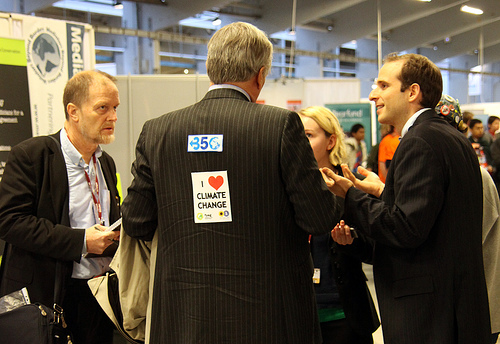
(The greatest success of the talks? A bit of childish humour adorning the back of lying climate change denier Christopher Monckton)
Still, by the time of our post-Copenhagen ‘debrief’ Ed Miliband appeared to have decided (or been told) to put a positive spin on the outcome. Despite looking as depressed as anyone in the room, he described the Accord as a “critical first step”, and proceeded to argue that expectations of Copenhagen had simply been too high. Yet of course those lofty expectations were based squarely on the science, which remains stubbornly unchanged by the recent political manoeuvrings.
I suppose Ed is virtually obliged to appear positive about the political process, because that is what he has invested his life in, and what he is giving all his efforts to. And when that many world leaders gather it is inevitable that the outcome will be spun as some kind of at least partial success. But Ed’s comments in an article last Sunday are rather more telling:
“In the months ahead, (Copenhagen’s) concrete achievements must be secured and extended”.
I wonder if such ‘unsecured concrete achievements’ were what Connie Hedegaard (initial President of the Copenhagen Conference and soon to be European Commissioner for climate change) was hoping for when she declared:
“This is our chance. If we miss it, it could take years before we got a new and better one. If we ever do.”
And what do these ‘achievements’ add up to? Well, if all the aspirational numbers in the Copenhagen Accord were actually fulfilled, they would lead to a CO2 concentration of 780ppm (double current levels) and a 3.9 degree warming by 2100. If political reality and scientific reality cannot be reconciled, there will be only one winner — Nature and physics simply do not negotiate. As George Monbiot put it,
“Goodbye Africa, goodbye south Asia; goodbye glaciers and sea ice, coral reefs and rainforest; it was nice knowing you, not that we really cared”.
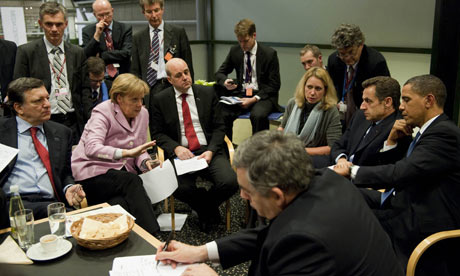
So now the political focus shifts to the odd game of claiming that the Copenhagen Accord represents success while simultaneously blaming others for its failure. Thanks to the nationalistic, competitive nature of international politics, Miliband, Obama and all the other would-be superheroes are desperately trying to find their supervillain.
Others before me have pointed out that if an alien invasion were swooping in to attack, with projected human mortality and other effects similar to those of climate change, we would have united against the threat long ago. That is the kind of external enemy we could really get to grips with (Hollywood stories have trained us well for that one), but for as long as politics is treated as a competition between nations, cooperative efforts for mutual benefit will remain beyond us.
Perhaps this time the ‘supervillain’ we face is far more cunning than those movie aliens. He realises that in order to destroy the world with his dastardly plot he needs only to hide from view. As long as humanity perceives no hand but our own in any of these events, he can just sit back and calmly watch us destroy ourselves.
It seems we can accept being killed by our own foolishness much more easily than being outsmarted. Unfortunately, taking a long hard look in the mirror and battling our internal supervillains remains deeply unfashionable…
So where does all this leave us? What are our chances now of avoiding unstoppable runaway climate change, with all that entails?
50%-50% ?
90%-10% ? (I don’t need to say which way)
Not even close.
For years now, I have played host to a cordial internal conflict between the part of me that insists that there may still be a tiny chance left of maintaining a stable climate, and the part that accepts that unstoppable runaway climate change is now inevitable…
I kept reading and researching, the information kept getting worse and worse, and then I recently stumbled across a quote that brought me up short. A 13th Century Islamic mystic by the name of Hajji Bektash Wali made the following pronouncement:
“For one who has perception,
A mere sign is enough.
For one who does not heed,
A thousand explanations
Are not enough.”
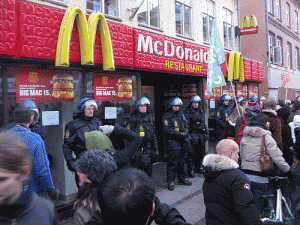
I confess that by now I may have had more than a thousand explanations of why it is too late, but it is still hard to give up hope on this one. In the article referred to earlier, Ed Miliband declared that:
“The challenge for all of us is not to lose heart and momentum. The truth is that the global campaign, co-ordinated by green NGOs, backed by business and supported by a wider cross section of the public, has achieved a lot… no campaign ever wholly succeeds at the first time of asking. We should take heart from the achievements and step up our efforts.”
And of course it is not just the politicians pushing this message. The likes of Greenpeace and Friends of the Earth also spun the Copenhagen fortnight as “humanity’s last chance” to avoid the horrific impacts of runaway climate destabilisation, which leaves their calls for (yet) “one more big push” sounding a little hollow. Even, I suspect, to them.
Yet the repeated calls to redouble our efforts do retain a certain allure. Yes, in part because finding peace with our own impotence in the face of such large-scale suffering is a formidable task, but I think even more because it would be so terrible to look back and feel that we gave up while there actually was still a chance there.
Maybe there’s still a chance that there’s a chance…?
But what if we are on the Titanic and the iceberg has already been struck? Can we think of nothing wiser to do than to try to patch the hole as the ocean rushes in?
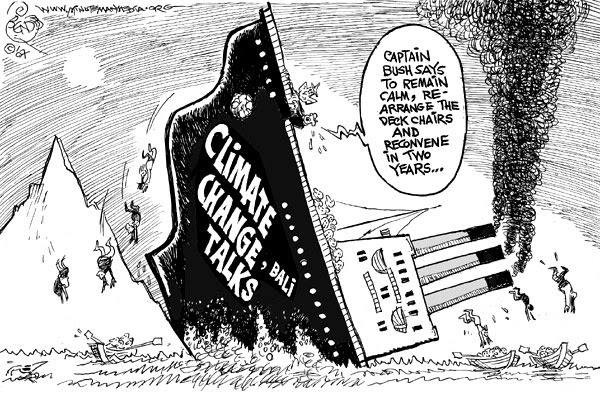
There are times when Hollywood heroism is just what is needed, but there are also times when superhuman efforts really are beyond us. And perhaps the perception the mystic spoke of whispers that one such time has come. A time to ponder the reasons why the latest political “last chance” wasn’t taken, to accept that a scientific technofix ain’t gonna save us either, and to look unflinchingly at the unpalatable, overwhelming realities of the period we are moving into.
Let’s at least allow ourselves to really ask: “What does life look like in a world of unstoppable climate destabilisation?”. What does my life look like there?
There are still lives to be lived in that world, choices to be made, love to give and suffering to alleviate. And only by allowing ourselves to explore that unknown realm can we see it for what it is, rather than what we might fear it to be.
On that note, I would like to introduce you to The Dark Mountain Project, started by Paul Kingsnorth and Dougald Hine, which invites us to explore this very terrain. By way of introduction, this from their Manifesto:
“And so we find ourselves, all of us together, poised trembling on the edge of a change so massive that we have no way of gauging it.
None of us knows where to look, but all of us know not to look down. Secretly, we all think we are doomed: even the politicians think this; even the environmentalists.
Some of us deal with it by going shopping. Some deal with it by hoping it is true. Some give up in despair. Some work frantically to try and fend off the coming storm.
Our question is: what would happen if we looked down? Would it be as bad as we imagine? What might we see? Could it even be good for us?
We believe it is time to look down.”

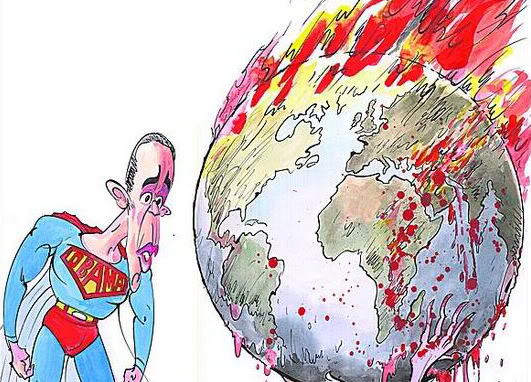
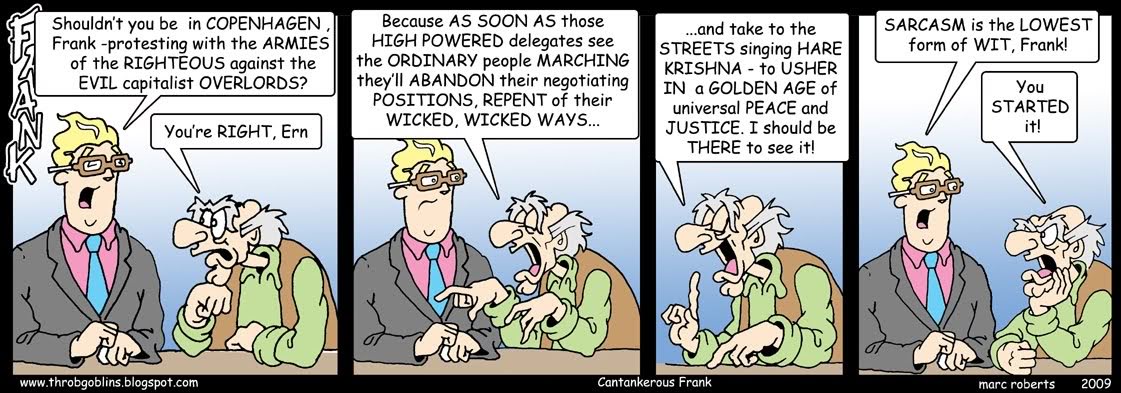

Shaun, very thoughtful, and thought-provoking posting.
You use the term “unstoppable runaway climate change”. I wonder if you make a distinction between “runaway” and “unstoppable” climate change – as per David Wasdell?
My understanding is that **runaway** means that the positive (amplifying) feedback loops create more instability and change than the countering negative (damping) feedbacks, and unchecked, this situation will lead to unstoppable. However, it can be checked with interventions – as you’ve mentioned elsewhere with soil remediation, reforestation, reduction of emissions etc.
On the other hand, **unstoppable** means that there’s no going back, that the feedback mechanisms we can influence (eg CO2 emission levels) will no longer dampen the other feedbacks that have taken on an escalating life of their own (eg methane, water vapour, sea-ice albedo). In complexity terms, I believe David W refers this as moving into a completely new attractor basin of climate behaviour.
Based on your discussion of above, it looks like you’re contemplating the possibility that we’ve gone beyond runaway and into unstoppable.
I think this is a very valuable discussion to have, and I know a lot of people for whom it’s very real. However, I think that discussion needs to be first framed with a clear definition of “runaway” and “unstoppable” and where exactly on that continuum this discussion has its footing.
Cheers. Ben.
And then there’s which runaway we’re talking about, too. Lovelock’s potential winnowing of the human species to a few thousand breeding couples at the poles?
Peter Ward’s green skies, purple oceans and oxygen levels too low to support humans at all?
Or, the one that truly gives me existential nightmares, Jim Hansen’s caution (Storms of my Grandchildren) that we really are capable of crashing past the last tipping point on the way to the Venus Syndrome?
Not that any of the scenarios are at all nice, or good for our karma, as such, but the last…I just can’t even get my head around it.
[…] Dark Optimism » Blog Archive » Heroes and villains in Copenhagen, and beyond […]
Hi Ben,
Yes, I use the terms as Wasdell does. My opinion at present is that we are into a ‘runaway’ situation (the amplifying feedbacks are dominating), that the science has not yet shut the door on the possibility of avoiding unstoppable runaway, but that the speed of change necessary socially and politically makes it extremely unlikely that we will ever find out whether we still had a chance.
As described in the post, part of me insists that there may still be a tiny chance left of maintaining a stable climate, and part accepts that unstoppable runaway climate change is now inevitable. I find I tend to look for activities that seem meaningful to both parts.
And yes Tamara, as you say, the endpoint of the runaway process remains unclear. Of course there is no such thing as endlessly amplifying runaway – it will always return to equilibrium eventually as a hotter planet loses more heat to space – but we do not yet know what that equilibrium might look like. The Venus scenario is, well, beyond sobering.
Nonetheless, any such endpoint remains many generations away, and the terrain that I find increasingly interesting is the lives we might lead while (potentially) on the path there.
Shaun
– it is very good to find discussion of the actual position re feedbacks, rather than of the diverse veils.
Your perception that we are already into ‘runaway’, as opposed to being on a path that is increasingly likely to have committed us to ‘runaway’, is new to me.
I’d long assumed that the P feedbacks have yet to offset the [declining] annual C recovery by the planet’s sinks.
Can you point me toward any (lay-intelligible) data on this question ?
Govts’ failure to utilize either the widely endorsed diplomatic framework of C&C, (disclosure: I’m Rural Development Liaison for GCI, as well as hill farmer/forester in Powys)
just like their tedious abstention on the demonstrably seminal geo-engineering option of ‘Reforestation for energy, biochar & biodiversity’,
is very depressing for those who struggle through all the distractions to realize just what is being missed.
Some decades ago I learned that there is a level of commitment in the hardest of tasks that demands that hope of success be set aside – it carries debilitating stresses with it. The fact that the work of generating the re-orientation is worth doing has to be enough motivation to persevere, regardless of the chances of seeing the turn achieved.
This is not an outlook that can usefully be evangelised. Some of those who find hope failing them may perhaps benefit from being introduced to it.
With best wishes,
Lewis
Shaun, found you via the Dark Mountain Project. Love the opening graphic, made me want to post a reply.
I agree with others, I dread that we are probably past the tipping point and its all down hill from here. Yet I too cling to a small shred of hope. 2010 and 2011 will tell the tale I believe.
Here is hoping we can spread the information needed to save as many as can be.
Lewis, regarding the latest scientific data, there is a good summary here:
https://climateprogress.org/2010/01/04/the-year-in-climate-science-scientists/
The ambiguous term ‘runaway’ is probably not that helpful, but I think it is relatively uncontroversial that with climate inertia meaning that we have at least another 0.6 degrees of warming in the pipeline, and with the impacts of the already-present 0.8 degree rise vastly greater than what humanity predicted, we are already into a situation in which the consequences of present atmospheric concentrations would pull us beyond any comfortable equilibrium temperature even without any further human input. But this is not to say that urgent human input in the other direction (actively reducing atmospheric concentrations) couldn’t stabilise our climate in a less deadly state. As James Hansen wrote in a 2008 paper in Science (worth checking out too):
“If humanity wishes to preserve a planet similar to that on which civilization developed and to which life on Earth is adapted, paleoclimate evidence and ongoing climate change suggest that CO2 will need to be reduced from its current 385ppm to at most 350ppm, but likely less than that.”
And yes, not making one’s happiness or sanity dependent on external success can be a powerful lesson. Perhaps a more pertinent measure is the story you would honestly tell about yourself on your deathbed. If you know you’re living the one you’d want to be telling, then all manner of suffering and disappointment can be borne.
Not that I believe in probability, but when our highest leaders are prepared to take a ’50-50 chance’ on precipitating catastrophic climate change on the explicit reason that it would require a change in taxes to take further action, [and their data is both out of date, incomplete, and rather optimistic ] then it is clear that there is no ‘central’ solution coming in the next very few crucial years of ‘war against exponentials that will overwhelm capabilities of mankind to do anything’ … the beginning is just too insidious and folks think in terms of straight lines… and then suddenly the slope is significant and by the time anyone changes the slope is overwhelming… it would be nice to think mankind is intelligent, and indeed some it seems are, but as a mass with governments set in fixed procedural patterns which cannot be altered because there is no procedure , patterns designed to allow corruption and protect the backs of the guilty… nay, corporate mankind , even the billions who do not know that is what we are, has killed itself by adopting inflexibility and living lies where mankind clearly only came this far by dealing with the truth and being flexible… to me it matters not because I loo beyond even the long-term whilst I can get few to even look beyond the short term disasters of life our way of ‘life’ brings… I see time as the ‘enemy’ , we should never have believed in it if we looked at it through the highest clarity of intuition/inspiration… what is my being is not my survival for a lifetime, nor anyone else’s but the spirit which ‘moves’ me , and the remarkable fact is that there is only one spirit moving us all… if we ‘could’ see that then we should all be happy and live by loving one another and there would be no such catastrophe as we now perhaps envision , a ‘shorter-term ending of much of mankind and nature through short-sighted mankind’ , but just a slower process of time in which even slower processes outstrip the human mind, its flexibility and and ability to think outside the boxes of ‘convenience’ [laziness ?]
Nay we would miss the point that way too… the point is that the spirit makes us what we are, some rush around doing things and solve their ‘problems ‘ that way, some think a bit further and see what works and what does not on longer time-scale , but who looks at what moves us ? Not religion, because that is easily unmasked as mostly political lies as bad as politics, but our own hearts if we STOP and listen, our own hearts tell us lovingness is the best way to live , but we have the capacity and will to deny our hearts using logic, ‘reason’ , even if the input to reason is false concepts, lies, albeit familiar lies… so the spirit has taken us this way , but also the spirit, by inspiration, has invested a few of mankind with a longer-still view of being, that not only is love beyond life and death [that by ceasing unlovingness through understanding what is ‘beyond’ life one can understand that the spirit creates the individual ‘soul’ and can recreate it just as easily], but that the spirit is thus not bound in time[or space] as is the perception of most souls … that the spirit is creator not in the sense of a physical being creating a physical being, but in the sense of creation of a virtual reality… that being is not in space and time, but makes the image of space and time…
And not only that, but the clues are there, the cracks in apparent reality, our ‘laws’ just don’t work, none of them …our conceptions are all assumptions of completeness where none exists… almost everything we believe could change tomorrow and all we could say is that we were wrong about causality…
But then what does the spirit see in our world …the answer is the whole of time and space , known , no doubt about beginning or end, no unknown future … and that vision of the end of time is given to us, but most will not look, will not believe, even if it came from their own hearts, their own ‘inner perception, their own inspiration…
So one cannot comfort mankind with the truth about what is our essence because of ‘inbuilt’ blindness, it is not just that most will not look, most are not moved to look, belief as-it-were prevents the seeing of the source of ALL knowledge, inspiration… our science refuses to look at its own source … the politics of lies and religion, and tradition thus complete the blindness process, but no-one is to ‘blame’ … we cannot see as individuals because that is how it is , when we shall see is when we shall see, and some that have seen have said so, but it changes not very much as incredibly few will listen and look and see… and that indeed has to be so…
The upshot then is that there is , in a sense that is real, only a virtual crisis … life does not even end at death, only at the time of ceasing all unlovingness [and then not necessarily immediately and indeed the individual may return to virtuality once freed of death, of ‘mortality’ … love is the only way out of life, but life says only very little about being … being is beyond time and space , and it is that which moves us as individuals … we are that being , ina sense we are its knowing of time and space, but time and space are no threat to being… the evidence for this is ,I believe, clear within us all, we should recognise it as true [hence I say it is ‘absolute’ ] , but belief of reason based on false evidence defeats our own inspiration of the truth…that is how it must be for most, so most will not see anything in this I write …. 🙂
Good day! I could have sworn I’ve been to this blog before but after reading through some of the post I realized it’s new to me. Anyhow, I’m definitely glad I found it and I’ll be bookmarking and checking back frequently!
[…] just as in Copenhagen two years ago, even if they do cobble something together in the next day or two, an agreement actually in line […]
[…] just as in Copenhagen two years ago, even if they do cobble something together in the next day or two, an agreement actually in line […]
[…] Heroes and villains in Copenhagen, and beyond (on the UN climate negotiations in 2009 – our ‘last chance’, apparently) […]
[…] And facing that reality hurts. […]
[…] Shaun Chamberlin of Dark Optimism, author of The Transition Timeline, was one of the first people to write about and engage with the manifesto. I’ve had many fruitful conversations with local groups, not least Transition Town Brixton on […]